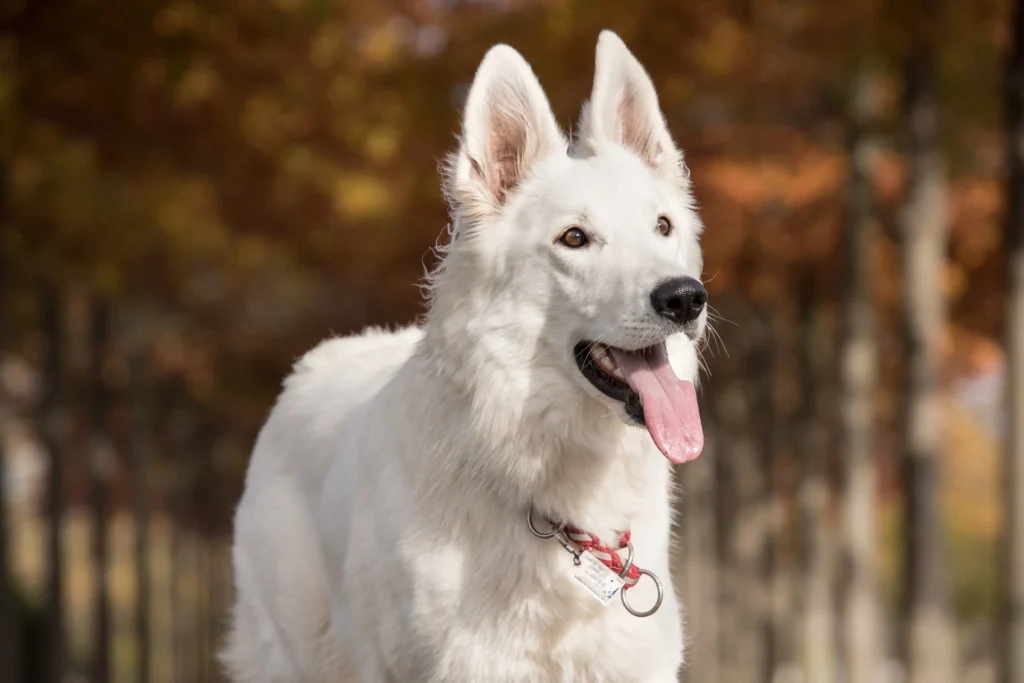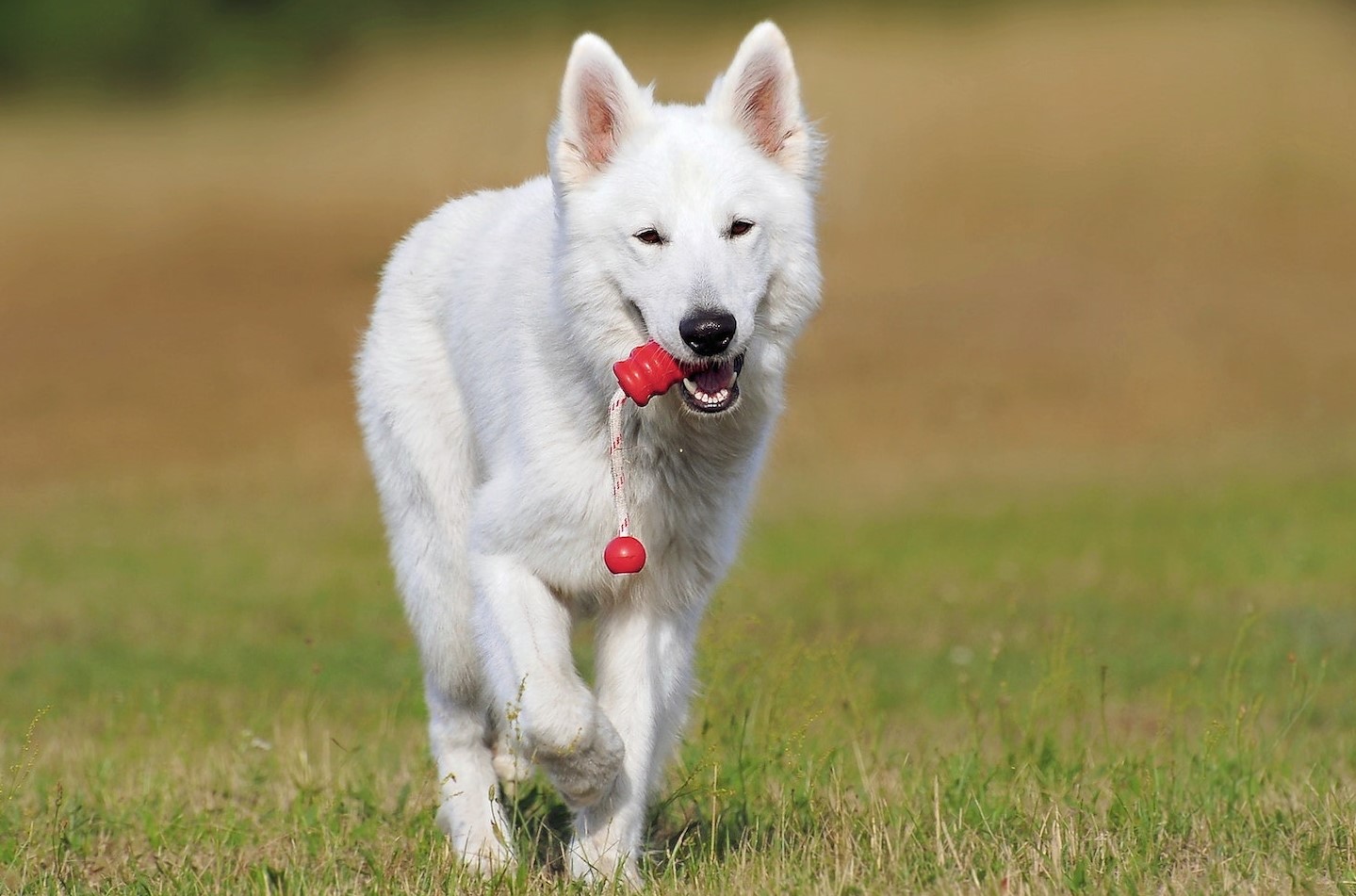German Shepherd Prices (2023) | 6 Types, Facts, Care Tips, Health Issues
If you’re considering welcoming a German Shepherd into your life, you might be wondering about the price involved. In this comprehensive guide, we’ll explore the various factors that influence the cost of owning a German Shepherd, ensuring you’re well-prepared for the financial aspects of bringing these loyal and intelligent companions into your home. From initial purchase prices to ongoing expenses, we’ll provide you with valuable insights to help you make an informed decision on this remarkable breed and German Shepherd Price in Different countries.
German Shepherd
German Shepherds are known for their striking appearance and remarkable intelligence, making them a beloved breed among dog enthusiasts worldwide. Originating in Germany, they were initially bred for herding sheep, thanks to their strong work ethic, agility, and keen instincts. However, their potential quickly transcended their herding origins, and they found roles in various capacities, including police work, search and rescue operations, and serving as guide dogs for the visually impaired.

One of the most distinctive features of German Shepherds is their appearance. They typically have a well-defined, muscular build, erect ears, and a coat that can come in various colors, with the classic black and tan combination being the most iconic. Their eyes are expressive, reflecting their intelligence and attentiveness.
The intelligence of German Shepherds is legendary. They are highly intelligent and thrive on mental stimulation, making them excellent candidates for obedience training and various tasks. Their dedication to learning and their desire to please their owners make them top choices for various working roles, where their skills truly shine.
Beyond their professional roles, German Shepherds are cherished family pets. Their loyalty and protective instincts make them wonderful guardians, while their affectionate nature endears them to families of all sizes. They often form strong bonds with their human companions, making them not just loyal protectors but also loving and attentive friends.

To ensure the well-being of your German Shepherd, it’s crucial to provide regular exercise, a balanced diet, and routine veterinary care. Like many breeds, German Shepherds are prone to certain health issues, such as hip dysplasia. Responsible breeding and early health screenings are essential to maintain their overall health and longevity.
German Shepherd Characteristics:
Some characteristics of the German Shepherd breed:
| Characteristic | Description |
|---|---|
| Origin | Germany |
| Breed Group | Herding |
| Size | Large |
| Coat Type | Double coat with dense, straight fur |
| Coat Colors | Most commonly black and tan, but variations |
| Temperament | Intelligent, loyal, protective, and alert |
| Energy Level | High |
| Trainability | Highly trainable, eager to please |
| Exercise Needs | Requires regular exercise and mental stimulation |
| Lifespan | 9 to 13 years |
| Health Issues | Hip dysplasia, elbow dysplasia, and bloat |
| Grooming Requirements | Regular brushing and occasional baths |
| Shedding | Moderate to heavy shedding |
| Socialization | Early socialization is crucial for a well-rounded dog |
| Common Jobs | Police, military, search and rescue, herding |
| Popularity | One of the most popular dog breeds worldwide |
| Notable Traits | Strong work ethic, protective instincts |
Types of German Shepherds
There are many different types of German Shepherds and each type of German Shepherd has different characteristics. Some of the most common types of German Shepherds are:
1. American Shepherd:
This type of German Shepherd is found mainly in the United States and is known for its loyalty, intelligence and versatility. American German Shepherds tend to be larger and looser compared to their European counterparts.

2. European German Shepherd:
Found primarily in Europe, this type of German Shepherd is known for its high energy, trainability and protective nature. European German Shepherds were thought to be smaller and more agile than American German Shepherds.

3. Long-haired German Shepherd:
This type of German Shepherd has a longer and fluffier coat compared to the traditional short-haired German Shepherd. Longhaired German Shepherds are not recognized as a separate breed by major kennel clubs, but they are popular with some breeders and dog owners.

4. White German Shepherd:
This type of German Shepherd is known for its pure white coat and is not recognized as a separate breed by major kennel clubs. White German Shepherds are considered colour variants of the German Shepherd breed.

5. Black German Shepherd:
This type of German Shepherd is known for its black coat and is not recognized as a separate breed by major kennel clubs. Black German Shepherds are considered colour variants of the German Shepherd breed.

6. Belgian German Shepherds:
Belgian German Shepherds are known for their strong work ethic, excellent trainability, and protective nature, and are bred using German Shepherd bloodlines that originated in Belgium. They are highly valued for their intelligence and obedience, and they are frequently used in roles such as police dogs, military dogs, and search and rescue dogs.
History of German Shepherd
The German Shepherd is a breed of dog that originated in Germany at the end of the 19th century. The breed was created by German cavalry officer Max von Stephanitz, who wanted to develop a versatile and intelligent working dog that could be used for a variety of tasks. He selectively bred various sheepdogs and farm dogs to create the German Shepherd, and the breed was officially recognized by the German Shepherd Dog Association in his 1899.
Appearance Of German Shepherd
German Shepherds are medium to big canines with a unique look. They have a muscular frame and a robust, athletic build, with a long, sloping back and powerful hind legs. They have a balanced head with a wedge-shaped cranium, floppy ears, and a powerful, scissors bite. German Shepherds have a thick and dense double coat that serves to keep them warm and protected from the weather. Their coat may be any colour, but the most popular are black and tan, black and silver, and pure black. German Shepherds are also recognised for their expressive, intelligent, brown or black eyes.

German Shepherd Personality
German Shepherds are loyal and clever canines with strong protective instincts. They are well-known for their obedience, bravery, and trainability, and they are frequently used as working dogs in a variety of jobs, such as police dogs, search and rescue dogs, and service dogs. German Shepherds are also extremely devoted and protective of their family and home.
German Shepherd Price
The price of a German Shepherd can vary widely, with factors like pedigree, and breeder reputation. In the United States, you can expect to pay anywhere from $800 to $2,500 for a German Shepherd, In India, the cost of a German Shepherd typically ranges from INR 5,000 to INR 20,000.
German Shepherd Price in United States:
In the United States, the price of a German Shepherd puppy can vary widely based on several factors, including the breeder’s reputation, bloodline, and location. On average, you can expect to pay anywhere from $800 to $2,500 for a German Shepherd.
German Shepherd Price in United Kingdom:
In the United Kingdom, German Shepherd prices also vary depending on similar factors. Typically, you can find German Shepherd puppies for sale from £800 to £2,000. High-quality pedigrees and championship bloodlines may lead to higher prices.
German Shepherd Price in Canada:
In Canada, the cost of a German Shepherd puppy is quite similar to the United States. Expect to pay between $800 and $2,500, depending on the breeder and the dog’s lineage. Keep in mind that prices can be higher in urban areas and lower in rural regions.
German Shepherd Price in Australia:
In Australia, German Shepherd puppies can range from AUD 1,200 to AUD 3,000 or more. As with other countries, the price is influenced by factors like the breeder’s reputation and the dog’s pedigree.
German Shepherd Price in Germany:
Given that the breed originated in Germany, you might expect to find German Shepherds at relatively lower prices compared to other countries. In Germany, the cost of a German Shepherd puppy from a reputable breeder typically ranges from €800 to €2,500.
German Shepherd Price in India:
German Shepherds are quite popular in India, and their prices can vary significantly depending on factors like the breeder’s location and reputation. In India, you might find German Shepherd puppies ranging from INR 5,000 to INR 40,000 or more.
German Shepherd Puppy Price
The average price of a German Shepherd puppy can range from $500 to $2,000, In India, the average price of German Shepherd Puppy can range from ₹10,000 to ₹30,000, with high-quality dogs potentially costing upwards or a maximum of ₹100,000 Rupees.
White German Shepherd Price in India
The price of a White German Shepherd puppy in India can vary from ₹ 20,000 to ₹ 50,000 depending on various factors such as the age, pedigree and location of the puppy. Because of their rare colour, white German Shepherds are usually more expensive than others.
Black German Shepherd Price in India
The price of a Black German Shepherd puppy in India can vary between ₹10,000 to ₹30,000 depending on various factors such as age, pedigree and location of the puppy. Black German Shepherds are relatively common.
Blue German Shepherd Price
The German Shepherd breed is recognized in a variety of colours, including black and tan, sable, and black, but blue is not a recognized colour. The blue German shepherd price cost from ₹10,000 to ₹50,000.

Brown German Shepherd Price
The price of a brown German Shepherd might vary depending on the dog’s age, pedigree, and location, among other things. A German Shepherd puppy may often be purchased for between ₹10,000 to ₹30,000.
Grey German Shepherd Price
A grey German Shepherd can cost between ₹10,000 to ₹30,000. Although grey is a known colour for German Shepherds, its popularity lack is unlikely to have an impact on the puppy’s price.
German Shepherd Long Coat Price
The price of a German Shepherd puppy can vary depending on several factors, such as age, pedigree and location. The price of German Shepherd puppies can vary from ₹10,000 to ₹32,000.
German Shepherd Double Coat Price
Generally, a German Shepherd puppy can cost between ₹10,000 to ₹30,000. The double coat is characteristic of the German Shepherd breed and is not considered a separate variant of the breed.

German Shepherd Single Coat Price
The price of a single-coated German Shepherd puppy can vary between ₹10,000 to ₹43,000 it is depending on various factors such as the puppy’s age, pedigree, and location. The single coat is not a recognized variation of the German Shepherd breed.
German Shepherd Ki Price
India me German Shepherd Ki Price ₹10,000 se lekar ₹80,000 tak hoti he or Germen Shepherd ke puppy ki Price ₹10,000 se lekar ₹30,000 tak hoti he. India me German Shepherd Ki Price lai sare karano pe depend karti he jaise German Shepherd kee umr, food aur location.
German Shepherd Prices in different cities in India
Here are German Shepherd Prices in different cities in India:
| Cities or States of India | Price in ₹ Rupees |
|---|---|
| German Shepherd Price in Delhi | ₹10,000 to ₹70,000 |
| German Shepherd Price in Hyderabad | ₹18,000 to ₹40,000 |
| German Shepherd Price in Bangalore | ₹16,000 to ₹36,000 |
| German Shepherd Price in Kerala | ₹10,000 to ₹90,000 |
| German Shepherd Price Chennai | ₹28,000 to ₹95,000 |
| German Shepherd Price in Kolkata | ₹22,000 to ₹57,000 |
| German Shepherd Price Pune | ₹24,000 to ₹91,000 |
| German Shepherd Price Coimbatore | ₹29,000 to ₹56,000 |
| German Shepherd Price in Patna | ₹20,000 to ₹60,000 |
| German Shepherd Puppy Price in Delhi | ₹12,000 to ₹68,000 |
| German Shepherd Puppy Price in Kerala | ₹8,000 to ₹45,000 |
| German Shepherd Price in Guwahati | ₹10,000 to ₹40,000 |
| German Shepherd Puppy Price in Hyderabad | ₹30,000 to ₹95,000 |
| German Shepherd Price in Mumbai | ₹35,000 to ₹90,000 |
| German Shepherd Price in Ranchi | ₹7,500 to ₹35,000 |
| German Shepherd Puppy Price in Coimbatore | ₹6,000 to ₹28,000 |
| German Shepherd Price in Bhubaneswar | ₹15,000 to ₹45,000 |
| German Shepherd Puppy Price in Bangalore | ₹36,000 to ₹60,000 |
| German Shepherd Price Dehradun | ₹9,000 to ₹75,000 |
| German Shepherd Price in Lucknow | ₹20,000 to ₹55,000 |
| German Shepherd Price in Punjab | ₹20,000 to ₹35,000 |
| German Shepherd Price in Vizag | ₹18,000 to ₹35,000 |
| German Shepherd Puppy Price in Chennai | ₹36,000 to ₹60,000 |
| German Shepherd Puppy Price in Lucknow | ₹20,000 to ₹40,000 |
| German Shepherd Price in Siliguri | ₹19,000 to ₹48,000 |
| German Shepherd Price in Tamilnadu | ₹20,000 to ₹35,000 |
| German Shepherd Price in Vijayawada | ₹18,000 to ₹50,000 |
| German Shepherd Puppy Price in Jaipur | ₹22,000 to ₹40,000 |
| German Shepherd Price in Maharashtra | ₹20,000 to ₹70,000 |
| German Shepherd Puppy Price in Maharashtra | ₹15,000 to ₹40,000 |
| German Shepherd Puppy Price in Punjab | ₹25,000 to ₹45,000 |
| German Shepherd Puppy Price in Tamilnadu | ₹8,000 to ₹20,000 |
| German Shepherd Price in Assam | ₹15,000 to ₹30,000 |
| German Shepherd Price in Bhopal | ₹20,000 to ₹40,000 |
| German Shepherd Price in Jaipur | ₹25,000 to ₹65,000 |
| German Shepherd Price in Jamshedpur | ₹20,000 to ₹55,000 |
| German Shepherd Price in Nagpur | ₹20,000 to ₹35,000 |
| German Shepherd Price in Odisha | ₹15,000 to ₹42,000 |
| German Shepherd Puppy Price in Meerut | ₹30,000 to ₹60,000 |
| German Shepherd Puppy Price in Pune | ₹14,000 to ₹36,000 |
Factors that Affect the Price of German Shepherd
There are several factors that can affect the price of a German Shepherd, that are:
- Breeder Reputation: A German Shepherd from a reputable breeder who follows responsible breeding practices will usually cost more than a German Shepherd from a less reputable source.
- Pedigree: German with a strong and reputable pedigree His Shepherd can be more expensive as breeders tend to charge more for dogs with proven pedigrees of strong and healthy dogs.
- Coat Types: German Shepherds with certain coat types, such as long coats or black and tan, can be more expensive.
- Location: The cost of a German Shepherd depends on where you live. German Shepherds may be more expensive in some areas due to high demand, while they may be cheaper in others.
- Ages: Puppies tend to be more expensive than adult German Shepherds because they are in high demand.
- Training and Socialization: German Shepherds that have been highly trained and socialized are more valuable to potential owners and therefore can be more expensive than those that are not.
- Health and Wellness: German Shepherds that are tested and certified as healthy can be more expensive than those that are not.

Monthly Cost of German Shepherd Dogs
Monthly costs associated with owning a German Shepherd dog:
- Food: The largest portion of your monthly budget will likely go towards food. German Shepherds are medium to large-sized dogs and require a nutritious diet. High-quality dog food for a German Shepherd can cost anywhere from $40 to $100 per month, depending on the brand and your dog’s size.
- Veterinary Care: Regular veterinary check-ups and preventive care are crucial for your dog’s health. This may include vaccinations, flea and tick prevention, and routine exams. Budget around $50 to $100 per month for these expenses, but keep in mind that unexpected health issues can increase costs.
- Grooming: German Shepherds have a double coat that requires regular brushing and occasional grooming. You may spend $20 to $50 per month on grooming supplies and services, depending on how much you can handle at home.
- Toys and Accessories: Dogs need mental stimulation and toys for exercise. Budget around $20 to $40 per month for toys, leashes, collars, and other accessories.
- Training: German Shepherds benefit from training and socialization. While this may not be a monthly expense, consider budgeting for obedience classes or private training sessions, which can range from $50 to $200 per session.
- Treats and Miscellaneous Costs: Treats and occasional miscellaneous expenses like new bedding or replacement of worn-out items can add another $20 to $30 per month.
- Pet Insurance: Consider pet insurance for unexpected medical emergencies. Premiums can vary widely, but a ballpark figure might be $30 to $50 per month.
- Savings for Emergencies: It’s wise to set aside some money each month for unexpected veterinary emergencies, which can cost thousands of dollars.
Pros and Cons of German Shepherd Dogs
Some common pros and cons of German Shepherd dogs:
| Pros of German Shepherds | Cons of German Shepherds |
|---|---|
| 1. Intelligence: German Shepherds are exceptionally intelligent and easily trainable. | 1. High Energy: They are a high-energy breed and require regular exercise and mental stimulation. |
| 2. Loyalty: They are known for their loyalty and devotion to their owners. | 2. Shedding: German Shepherds have a double coat and shed year-round, requiring regular grooming and cleaning. |
| 3. Versatility: They excel in various roles, including as working dogs, search and rescue, and family pets. | 3. Health Concerns: They are prone to certain genetic health issues, including hip dysplasia and elbow dysplasia. |
| 4. Protective Instincts: German Shepherds are natural protectors and make excellent guard dogs. | 4. Socialization Needs: Proper socialization is crucial to prevent fear or aggression towards strangers and other dogs. |
| 5. Agility: They are agile and excel in dog sports like agility and obedience. | 5. Time Commitment: They require significant time and attention, and leaving them alone for extended periods can lead to behavioral issues. |
| 6. Working Drive: Their strong work ethic and drive make them suitable for various tasks and activities. | 6. Training Challenges: They may test boundaries and require consistent, patient training to ensure good behavior. |
| 7. Family Companionship: They can be loving and affectionate family pets when properly trained and socialized. | 7. Space Requirements: German Shepherds do best in homes with ample space to move and play. Apartment living may not be ideal. |
| 8. Alertness: Their alert nature makes them excellent watchdogs, alerting you to potential threats. | 8. Allergies: They can be prone to allergies, which may require dietary adjustments and medication. |
| 9. Search and Rescue: They are often used in search and rescue operations due to their tracking abilities. | 9. Bloat Risk: They have a higher risk of bloat, a life-threatening condition that requires immediate attention. |
| 10. Intelligence: Their intelligence makes them problem-solvers and quick learners. | 10. Separation Anxiety: They can develop separation anxiety if left alone frequently or for long periods. |

German Shepherd Fun Facts
There are some fun facts about German Shepherds that are given below:
- German Shepherd was originally bred for sheep herding in Germany in the late 19th century.
- They are one of the most popular dog breeds in the world and are known for their intelligence, loyalty and trainability.
- German Shepherds are trained for a wide range of duties including search and rescue, law enforcement and military operations.
- German Shepherds are very active and require daily exercise to maintain physical and mental health.
- It has a distinctive appearance, with a sturdy build, wedge-shaped head, and upright triangular ears.
- German Shepherds have a keen sense of smell and are often used for sniffing tasks such as detecting drugs and bombs.
- Protects the family and is often used as a guard dog. The
- German Shepherd is known for being easy to train and is popular in various canine sports such as obedience, agility and Schutzhund.
- Stanley Coren’s The Intelligence of Dogs ranks him 3rd in ease of training and obedience and is a highly intelligent breed.
- Despite their physique and muscular physique, German Shepherds are surprisingly graceful and athletic and are often used in Hollywood for their natural acting ability.
Care Tips for German Shepherd
Taking care of a German Shepherd involves a combination of proper nutrition, exercise, grooming, training, and regular veterinary care to ensure their health and happiness. Here are some care tips for German Shepherds:
1. High-Quality Diet:
Provide your German Shepherd with a balanced and high-quality dog food appropriate for their age, size, and activity level. Consult your veterinarian for specific dietary recommendations.
2. Regular Exercise:
German Shepherds are active and energetic dogs. They require daily exercise to stay physically and mentally stimulated. Long walks, playtime, and even agility training can help meet their exercise needs.
3. Socialization:
Early socialization is crucial to ensure your German Shepherd is well-behaved and comfortable around other dogs and people. Expose them to various environments, people, and situations from a young age.
4. Obedience Training:
German Shepherds are intelligent and thrive on mental stimulation. Enroll them in obedience training classes to establish good behavior and reinforce their bond with you.
5. Grooming:
German Shepherds have a double coat that sheds year-round. Regular brushing helps manage shedding and keeps their coat healthy. Bathing should be done as needed. Pay attention to their nails, ears, and teeth as well.
6. Healthcare:
Schedule regular check-ups with a veterinarian to monitor your dog’s health. Ensure they are up-to-date on vaccinations, flea and tick prevention, and heartworm medication. Discuss any breed-specific health concerns with your vet.
7. Dental Care:
Brush your German Shepherd’s teeth regularly to prevent dental issues. Dental chews and toys can also help maintain oral health.
8. Mental Stimulation:
German Shepherds thrive when mentally challenged. Puzzle toys, interactive games, and training sessions can keep their minds sharp.
9. Secure Environment:
Provide a safe and secure environment, especially if you have a puppy. German Shepherds are known for their curiosity, so puppy-proofing your home is essential.
10. Love and Attention:
German Shepherds are loyal and affectionate dogs that thrive on human companionship. Spend quality time with your dog, offer affection, and provide a loving and nurturing home.
11. Proper Rest:
Ensure your German Shepherd gets enough rest. They need quality sleep to maintain their physical and mental health.
12. Watch for Signs of Stress or Illness:
Be attentive to any changes in behavior, appetite, or energy levels. Early detection of health issues is crucial for prompt treatment.

Health Issues of German Shepherd
German Shepherds are generally healthy dogs, but like all breeds, they can be prone to certain health issues. Being aware of these common health concerns can help you provide the best care for your German Shepherd. Here are some of the health issues that are commonly associated with German Shepherds:
1. Hip Dysplasia:
German Shepherds are known for their susceptibility to hip dysplasia, a genetic condition where the hip joint doesn’t develop properly. This can lead to arthritis and lameness. Responsible breeding practices can help reduce the risk.
2. Elbow Dysplasia:
Similar to hip dysplasia, elbow dysplasia is a genetic condition affecting the elbow joint. It can cause lameness, pain, and arthritis in affected dogs.
3. Bloat (Gastric Torsion):
German Shepherds are one of the breeds more prone to bloat, a life-threatening condition where the stomach twists on itself. Symptoms include a distended abdomen, restlessness, and attempts to vomit without producing anything.
4. Degenerative Myelopathy:
This is a neurological disease that can affect German Shepherds as they age. It leads to a gradual loss of coordination and mobility in the hind limbs.
5. Exocrine Pancreatic Insufficiency (EPI):
EPI can affect the pancreas’s ability to produce digestive enzymes, leading to malabsorption of nutrients and weight loss. German Shepherds are among the breeds predisposed to this condition.
6. Allergies:
German Shepherds can be prone to allergies, including food allergies and environmental allergies. Allergies can lead to skin issues, itching, and discomfort.
7. Pancreatitis:
Pancreatitis is an inflammation of the pancreas and can cause severe abdominal pain, vomiting, and diarrhea. It may be triggered by a high-fat diet.
8. Hemophilia:
German Shepherds can inherit hemophilia, a genetic bleeding disorder that impairs the blood’s ability to clot properly.
9. Cancers:
Like many larger breeds, German Shepherds are at a higher risk for certain types of cancer, including hemangiosarcoma and osteosarcoma.
10. Eye Issues:
They can be prone to eye conditions like progressive retinal atrophy (PRA) and cataracts, which can lead to vision problems or blindness.
Training of German Shepherd
Training a German Shepherd is essential to ensure they become well-behaved, obedient, and happy companions. German Shepherds are highly intelligent and thrive on mental stimulation, making them eager learners. Here’s a guide on how to train a German Shepherd effectively:
- Start Early: Begin training your German Shepherd as soon as you bring them home, ideally when they are still puppies. Early socialization and obedience training are crucial for their development.
- Basic Obedience Commands: Teach fundamental commands such as “sit,” “stay,” “down,” “come,” and “heel.” Consistency is key; use the same commands and gestures consistently.
- Positive Reinforcement: German Shepherds respond well to positive reinforcement techniques. Use treats, praise, and affection as rewards when they obey commands correctly. Avoid harsh punishments, as this can lead to fear or aggression.
- Socialization: Expose your German Shepherd to various environments, people, and animals. Socialization helps prevent fear or aggression towards strangers and other dogs.
- Crate Training: Crate training is useful for housetraining and providing a safe space for your dog. Make the crate a positive place with treats and toys.
- Leash Training: Teach your German Shepherd to walk on a leash without pulling. Consistent leash training ensures they walk calmly during walks.
- Stay Calm and Assertive: German Shepherds respond well to confident and calm leadership. Be consistent in your commands and actions, establishing yourself as the pack leader.
- Exercise and Mental Stimulation: Provide ample exercise and mental stimulation. German Shepherds need both physical and mental challenges to stay happy. Engage in activities like agility, obedience, or puzzle toys.
- Advanced Training: German Shepherds excel in advanced training tasks, such as agility, search and rescue, and protection work. Consider enrolling in specialized training classes if you’re interested in these activities.
- Avoid Overexertion: While exercise is crucial, be mindful not to overexert your German Shepherd, especially during puppyhood when their joints are developing.
- Consistency: Consistency is key in training. Use the same commands and rewards consistently to avoid confusion.
- Patience: Training takes time and patience. German Shepherds may test boundaries, but remaining patient and positive will yield better results.
- Professional Help: If you encounter training challenges or behaviours you’re unsure how to address, consider seeking help from a professional dog trainer or behaviourist.
The lifespan of a German Shepherd
The average lifespan of a German Shepherd is 7-10 years. With proper care, nutrition, and veterinary attention, some German Shepherds can live as long as 12 years or more. Factors that can affect the lifespan of a German Shepherd include genetics, diet and exercise, overall health, and access to regular veterinary care.
German Shepherd Care and Training Video
Food for German Shepherd Dogs
Some common Food options for German Shepherd Dogs:
| Food Type | Description |
|---|---|
| High-Quality Dog Food | Provides essential nutrients for overall health |
| Lean Proteins (Chicken, Beef) | Supports muscle development and energy levels |
| Whole Grains (Brown Rice) | Good source of carbohydrates for sustained energy |
| Fruits and Vegetables | Adds vitamins, minerals, and fiber to the diet |
| Fish or Omega-3 Supplements | Promotes healthy coat and skin, supports joints |
| Limited Treats | Prevents overfeeding and maintains a healthy weight |
Popular Names for German Shepherd Dogs
Popular Names for German Shepherd Dogs:
| Male Names | Female Names |
|---|---|
| Max | Bella |
| Rex | Luna |
| Zeus | Ava |
| Bear | Maya |
| Thor | Sasha |
| Duke | Zoey |
| Odin | Roxy |
| Kaiser | Nala |
| Shadow | Riley |
| Rocky | Sadie |
Conclusion:
In conclusion, the German Shepherd is a remarkable and versatile breed known for its intelligence, loyalty, and strong work ethic. Renowned for its roles in police work, search and rescue, and as a devoted family companion, the German Shepherd’s combination of physical prowess and sharp intellect makes it a standout breed. Their protective nature and adaptability contribute to their popularity, fostering deep bonds with their owners. With proper training, socialization, and care, the German Shepherd exemplifies the qualities of a loyal and dependable canine companion.
Frequently Asked Questions on German Shepherd Dogs:
-
What is German Shepherd Dog Price?
The price of a German Shepherd Dog can vary greatly, ranging from $500 to $2,500 or more, depending on factors such as the breeder, the dog’s bloodline, and the location.
-
What Is The Price of a German Shepherd in India?
The price of a German Shepherd in India can range from around 20,000 to 50,000 Indian Rupees or more, depending on factors such as the breeder, the dog’s bloodline, and the location.
-
German Shepherd Puppies For Sale in Coimbatore Price?
The price of German Shepherd puppies for sale in Coimbatore, India can range from around 20,000 to 45,000 Indian Rupees or more, depending on factors such as the breeder, the puppies’ bloodline, and the location.
-
Is it legal to own a German Shepherd in India?
Yes, Is it legal to own a German Shepherd in India.
-
Are German Shepherds very loyal to Humans?
Yes, German Shepherds are known for their loyalty to humans. They are highly devoted to their families and are protective of their loved ones, making them great companions and protectors.
-
What is the best Temperature for German Shepherds?
German Shepherds are a hardy breed and can tolerate a range of temperatures, but they are most comfortable in temperatures between 60 and 80 degrees Fahrenheit.
-
What is the average lifespan of a German Shepherd?
The average lifespan of a German Shepherd is typically around 10 to 13 years. Proper care, nutrition, and regular veterinary check-ups can contribute to a longer and healthier life for your furry companion.
-
How much exercise do German Shepherds need daily?
German Shepherds are an active breed and require at least 1 to 2 hours of exercise every day. This can include walks, playtime, and mentally stimulating activities to keep them happy and healthy.
-
Are German Shepherds good with children?
Yes, German Shepherds are often wonderful family dogs. They are loyal and protective, making them great companions for children when properly trained and socialized from an early age.
-
Do German Shepherds shed a lot?
Yes, German Shepherds have a double coat and shed throughout the year. Regular brushing can help manage their shedding, and they tend to shed more during seasonal changes.
-
Are German Shepherds aggressive?
German Shepherds are not inherently aggressive, but they are protective by nature. Proper socialization and training are crucial to ensure they are well-behaved and not aggressive towards strangers.
-
What are common health issues in German Shepherds?
German Shepherds can be prone to health issues like hip dysplasia, elbow dysplasia, bloat, and certain genetic conditions. Responsible breeding and regular veterinary check-ups are essential to monitor their health.
-
Are German Shepherds good for first-time dog owners?
While they are highly trainable, German Shepherds can be a good fit for first-time dog owners if they are committed to training and socialization. However, they require time, attention, and proper care.
-
Can German Shepherds live in apartments?
German Shepherds thrive in homes with ample space to move and play. Apartment living can be challenging unless you can provide them with sufficient exercise and mental stimulation.
-
Do German Shepherds get along with other pets?
German Shepherds can get along with other pets, but it depends on their socialization and individual temperament. Early socialization and proper introductions are key to successful multi-pet households.
-
What are some unique characteristics of German Shepherds?
German Shepherds are known for their intelligence, loyalty, and versatility. They are often used in roles like police work, search and rescue, and as guide dogs for the visually impaired due to their exceptional abilities.
Related Posts:
Golden Retriever Price in India | List, Care Tips, Lifespan and Food
Search Dog Prices in India, USA, UK | Price List with Comparison
Labrador Price In India & Everything about Labrador – (February 2023)
Macaw Bird Price in India (Feb 2023) – Care, Tips, Food – BestToPets





























